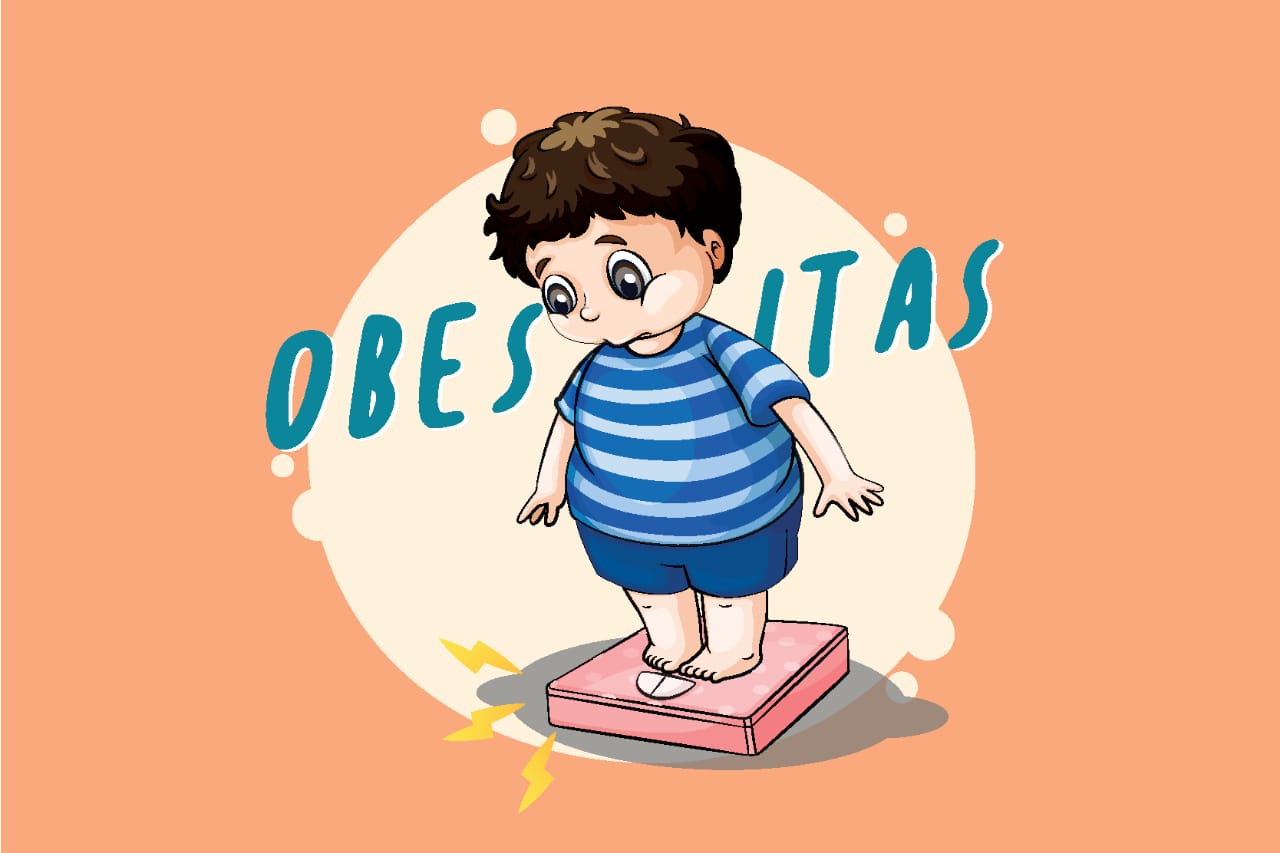Are you much shorter than your peers? Are you overweight at your current age? It could be the result of malnutrition as a child. Malnutrition (lack or excess nutrition) as a child can have an impact throughout the life cycle, even from the time in the womb. Among a number of conditions of body stature that do not meet age standards and are caused by malnutrition, some are called stunting, and some are called obesity.
According to the Ministry of Health of the Republic of Indonesia, stunting is a growth and development disorder in children due to chronic malnutrition and repeated infections which are characterized by their length or height being below the standard. The standard is based on four parameters:
a. Body weight by age;
b. Height according to age;
c. Body weight compared to height;
d. Body mass index by age.
A person is categorized as stunted when his length or height shows a number below -2 standard deviations (SD). If this condition is experienced by a child who is under the age of two, it must be treated immediately and appropriately.
Stunting in children causes disruption of brain development, body metabolism, and physical growth. Keep in mind, short stature is not necessarily the result of stunting, but people who are stunted are definitely short.
Meanwhile, obesity is a risk factor for non-communicable diseases (NCD) such as coronary heart disease (CHD), diabetes mellitus (DM) or diabetes, and hypertension or high blood pressure.
Talking about stunting and obesity, both are the focus of this year's National Nutrition Day. For information, since 1960, January 25 has been designated as National Nutrition Day. The theme of this year's National Nutrition Day is "Together action to prevent stunting and obesity".
Dear readers, don't immediately conclude that stunting only affects people from the lower middle class. Children from affluent families can also experience it. Even though they have money and food ingredients, the method to choose, process, and provide food to babies who are still in the womb or toddlers also greatly determines their physical and intellectual growth and development.
This is inline with obesity. Citing detikHealth (May 19, 2015), a number of studies show that the number of children who are obese is actually higher than that of poor families.
A study conducted by Ashlesha Datar from the University of Southern California, Los Angeles compared data on 17,000 kindergarten children in 1998 with 15,500 children in 2010. The data taken included weight, height, body mass index and socio-economic conditions of the family.
"When we divide the data by socio-economic group, it will be seen that the increase in the prevalence of childhood obesity is greater in families with lower socio-economic conditions," Datar said, quoted by Reuters on Tuesday (19/5/2015).
In line with that, an article from Health liputan6 (15 January 2014) also describes the results of research showing that children from the lower middle economic class are actually more prone to obesity.
Research conducted by Professor Robert Putnam and his colleagues from Harvard University found that people with low incomes never even think about buying a car because they are more likely to spend money to buy their children processed foods that are high in fat and sugar. In addition, the places where children from the lower middle class live do not have parks, sidewalks, and recreational facilities, which ultimately makes the children unable to do physical activities and can only stay at home. The children activities were only limited to studying, eating, and sleeping.
This last sentence bothers me. Could it be that I also have the potential to be obese? The reason is, my activities are only writing/reading, eating, and sleeping, occasionally watching movies to get rid of boredom.
So, are there any fellow disabled people who are stunted or obese? It would be possible but until I finished this paper, I have not found data on the number or percentage. What I remember is that U have some friends who at first glance appear to be stunted.
Passing the age of thirty, the human height is only about 140-145 centimeters. The physical health is also quite often disturbed, even with the same disease repeatedly in a fairly short interval of time. However, when I read the definition and criteria for stunting above, I was not so sure about it. Apart from having no medical records, their intellect cannot be doubted either. They are intelligent, creative, and productive.
Therefore, do not rush to feel inferior when you are shorter or fatter than the people around you. The most important thing is a clean and healthy lifestyle and balanced nutrition.
Happy 62nd National Nutrition Day!
 Bahasa
Bahasa
 English
English


